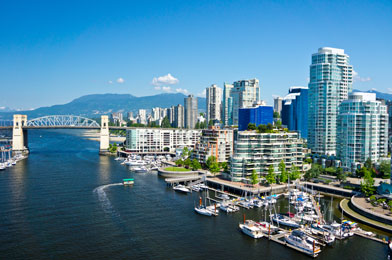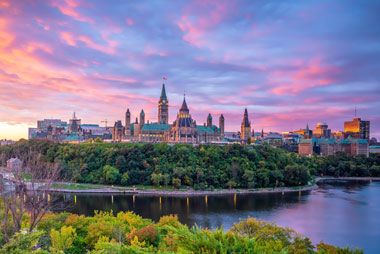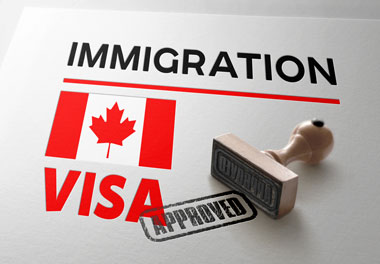
Population
As of July 1, 2021, Canada’s is home to 38,246,108 people.
Median age
41.1 years old
Area
9,984,670 km2
Canada is a huge country-continent, with a mosaic of distinct cultures that reside across 6 time zones,
from Newfoundland to British Columbia.
Official languages
French and English
Currency
Canadian dollar
One Canadian dollar is equivalent to 0.69 euro.
GDP growth
Canada recorded a 5.4% decline in GDP in 2020 as a result of the pandemic, but the forecast growth for 2021 is 5.1%.
Unemployment rate
Canada is enjoying its lowest unemployment rate (7.1%) since the beginning of the pandemic. In August 2021, the unemployment rate in Quebec was 5.8%.
Federal capital
The political and administrative capital of Canada, Ottowa is located in the south-eastern part of the province of Ontario, on the Ottawa River, opposite the city of Gatineau in Quebec. Home to some 1.24 million people, it is the fourth largest city in the country by population. Toronto is considered Canada’s economic capital.
National day
July 1 is Canada Day. The holiday commemorates July 1, 1867, the day Canada came into being with the enactment of the British North America Act by Queen Victoria.
July 1 is a statutory holiday that is moved to July 2 when Canada Day falls on a Sunday. Annual celebrations include parades and fireworks.
System of government
Canada is a constitutional monarchy with a bicameral parliamentary system and a federation of ten provinces and three territories.
Head of State: Queen Elizabeth II of Canada is represented by a Governor General (Julie Payette since 2 October 2017).
Prime Minister: Justin Trudeau (Liberal Party of Canada) since 4 November 2015.
Immigration
The Canadian government aims to welcome over 1.2 million new permanent residents by 2023. In 2020, 284,287 immigrants arrived in Canada, mostly from India, China, Nigeria, and the United States. About one in four workers in Canada is an immigrant. Immigrants make up 21.9% of the national population according to 2016 census data.
Find out more about the requirements for living, working and studying in Canada, and understand the weather before moving to Canada.
The French in Canada
According to data from the Ministry of Foreign Affairs, 98,894 French nationals are registered on consular lists in Canada, including: 61,074 in the electoral district of Montreal, 14,268 in Quebec City, 13,370 in the electoral district of Toronto, 10,182 in Vancouver and 804 in Moncton.
The average expatriate age is 44 years old. According to the survey conducted for this study, 65% are employees, 13% are retired, 12% are self-employed and 10% are students or have another status. In short, the typical French person living in Canada is a French-born man in his forties who works and lives in Quebec, more precisely in Montreal.
United Nations Human Development Index
Designed to evaluate countries’ human development rates, the HDI was initially based on three criteria: GDP per capita, life expectancy at birth, and education and schooling levels. In 2019, Canada ranked 21st out of 228 countries.
Are you thinking of relocating to the Land of Maple Syrup? Contact Sophie Lucas, Managing Director of AGS France, for: comprehensive support, and expert advice on every aspect of your expatriation: sophie.lucas@agsfrance.com



